The Container Made of the Contained
Mahsa Aleph
“The Container Made of the Contained”
“I want someone in need. I want someone hungry. I want someone thirsty. Limpid water seeks someone thirsty.” —Shams Tabrizi
The Persian word for “plate,” boshqab, is a borrowed word from Turkish. It means “empty vessel”: a container that does not contain anything. Essentially, the container cannot be one with the contained: the container is devoid of the contained. The word itself seems to be emphasizing the fact that the container is inherently empty of the contained and the two cannot be the same. Moreover, they are necessarily not made of the same stuff. The container preserves the contained, and as long as the contained is there, the container is the contained’s vail. It is simultaneously a nest and a cage.
The contained cannot be reduced to the container and is not defined by it, as the ship does not define the sea. Can appearance and nature, name and the named, seeker and the sought, place and presence share the same essence? Can the container be made of the contained? The very same container that is empty of the contained?
This installation represents a metaphor for the unity between the container and the contained, dismantling, unavailingly, their eternal relationship; an endless cycle in which the contained is itself a container.
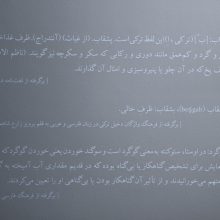
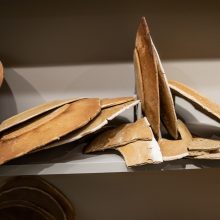
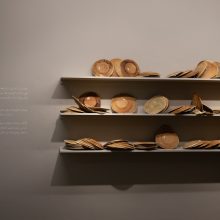
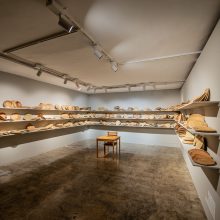
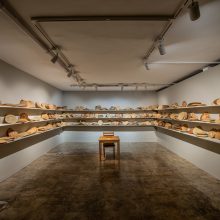
![Mahsa Aleph, “Sogand” [lit. “Sulfur”,”Oath”] (Detail), from “The Container made of the Contained” series, installation of desk, chair, and sulfur, 2019](https://mohsen.gallery/uploads/D8A_5466-220x220.jpg)